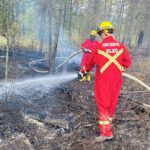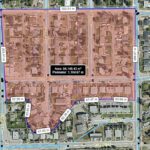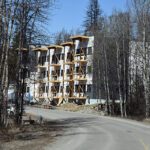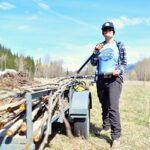Home »

B.C.’s COVID-19 response and latest updates for June 10
Adrian Dix, Minister of Health, and Dr. Bonnie Henry, B.C.’s provincial health officer, today (June 10) issued the following joint statement regarding updates on the novel coronavirus (COVID-19) response in British Columbia.
Today, we are announcing 12 new cases who have tested positive for COVID-19, for a total of 2,680 cases in British Columbia.
There are 185 active cases of COVID-19 in the province and 2,328 people who tested positive have recovered.
Of the total COVID-19 cases, 12 individuals are hospitalized, four of whom are in intensive care. The remaining people are recovering at home in self-isolation.
Every health region in British Columbia has patients with COVID-19. Since the start of the pandemic, there have been 911 in the Vancouver Coastal Health region, 1,378 in the Fraser Health region, 130 in the Island Health region, 195 in the Interior Health region and 66 in the Northern Health region.
There have been no new COVID-19 related deaths, for a total of 167 deaths in British Columbia. We offer our condolences to everyone who has lost their loved ones during the COVID-19 pandemic.
There has been one new outbreak at Holy Family Hospital, a long-term care facility in Vancouver. In total, five long-term care or assisted-living facilities continue to have active outbreaks.
There have been no new community outbreaks, and public health teams are providing support for the six ongoing community outbreaks.
Through our active surveillance and testing, we have recently identified two community clusters of COVID-19 associated with large family connections.
This tells us that our public health teams are quickly identifying new cases. It also tells us that while our overall provincial cases may be low, COVID-19 is active and spreading in our communities.
When you bring households together, regardless of how many people that may include, everyone brings their own risk with them and the potential for spreading COVID-19 increases.
This is why fewer faces and bigger spaces needs to continue to be our guidepost for how we move forward.
If you are someone who works in our health-care system, someone for whom essential travel is required or live in the same household with essential workers, it is very important to continue to limit your other social interactions so you don’t spread the risk around.
Anyone coming across our border from the United States is coming from a high-risk area and needs to take full precautions to avoid inadvertently spreading the virus to your family or community in Canada.
If you are returning from university elsewhere in Canada, it is important to monitor yourself closely for symptoms, as some other parts of Canada are also experiencing community clusters and spread.
A COVID-19 test when you are asymptomatic is ineffective and is not your passport to increase your social circle. Following all of the rules for safe physical distancing and wearing a cloth mask when you can’t keep those distances is.
Monitor, manage and modify are going to be the keys to managing COVID-19, by keeping our communities safe and protecting the ones we care for most.
Lead image: Some more signs of the COVID-19 times in the front of the Groundfloor Co-Working space in Cranbrook. Carrie Schafer/e-KNOW photo
e-KNOW







